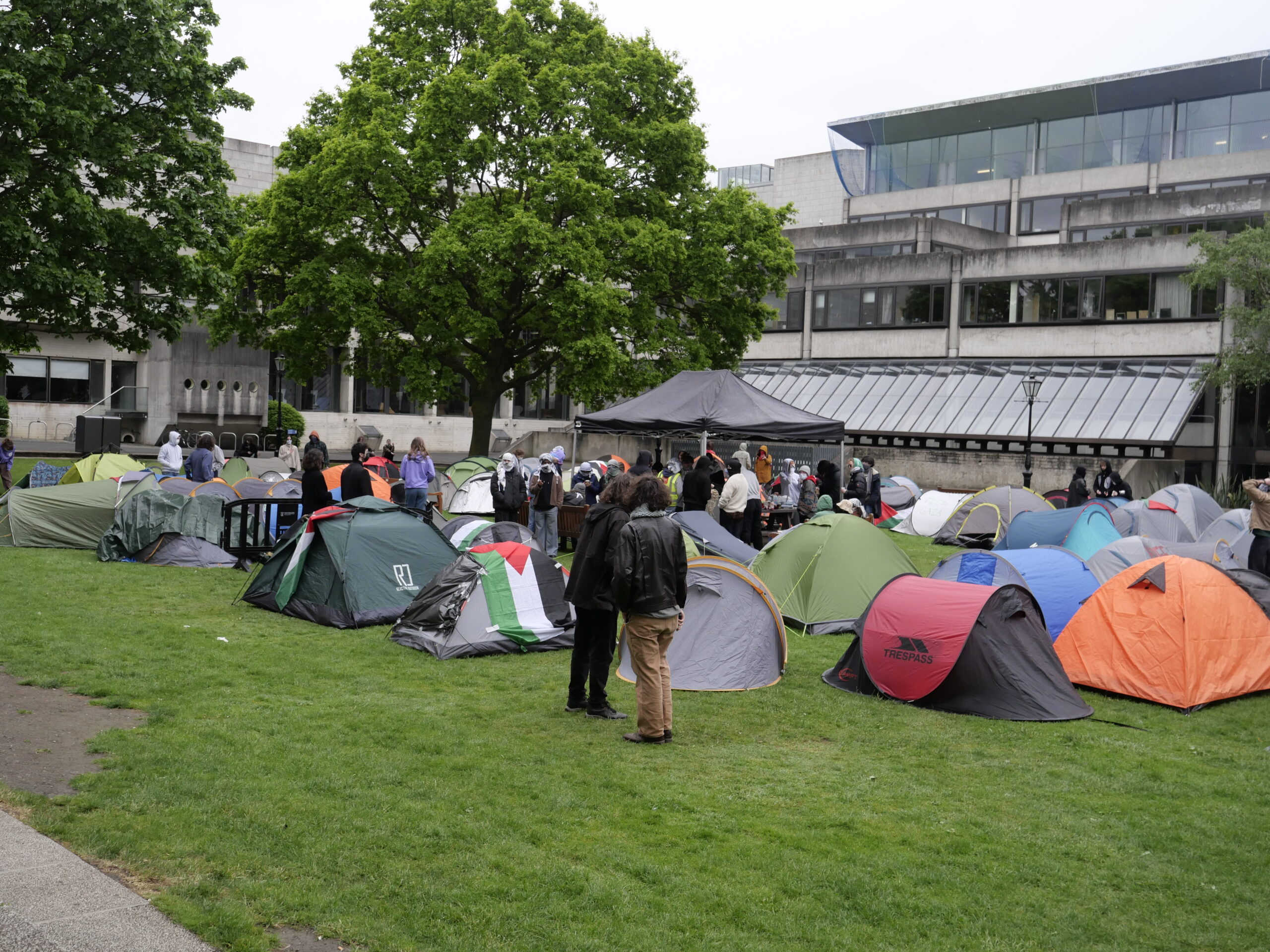On Friday, May 10th, the Israeli Embassy of Ireland published a statement that described the Trinity Boycott, Divestment, Sanctions (BDS) encampment as “extreme and destructive” and “not ‘peaceful’”.
The embassy further accused the activist group of “harming tourism and infringing on the rights of others”, by denying the public access to the Book of Kells over the course of six days.
The statement went on to say that Israel is a “progressive society” and that BDS actions are “inherently discriminatory”. According to the statement, by agreeing to these principles, College is attempting to “penalise [sic] an entire nation”.
The agreement that College came to with encampment protestors was further criticised by the embassy, stating that “expressing one’s views about Israeli government policy is legitimate, however attacking Zionism, which is the right to self-determination and statehood for Jewish people in their ancestral homeland is verging on antisemitism”/
The statement that College circulated on May 8th after successful talks with protestors, condemned the “atrocities of October 7th” and the “disproportionate onslaught” in Gaza, and supported the findings of the International Court of Justice.
In October the Israeli Ambassador Dana Erilch criticised Irish President Michael D. Higgins for making comments that Erlich called “misinformation” and “inflammatory”.
According to Oxfam, the daily death rate in Gaza is higher than any other major 21st Century conflict. The Israeli Ambassador refers to this conflict as an “Israel-Hamas war”, despite the Gaza Health Ministry reporting on Saturday that over 34,000 Palestinians have been killed by Israel’s military offensive since October 7th.
The University Times has contacted a member of the Trinity BDS committee and a College spokesperson for comment.







